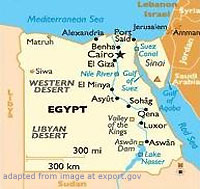Russia’s opportunity in Egypt

From: IRASTRAUS@aol.com (Ira Straus)
Date: Thu, 4 Jul 2013 12:42:04 -0400 (EDT)
Subject: Russia’s opportunity in Egypt
Now is the time for Russia to say it was right all along about Egypt. And to play a role in helping consolidate the latest corrective, which brings back a prospect for a moderate regime in that pivotal country.
The U.S. has lost greatly in prestige among Egyptians, because of the vocal support its Administration gave in the last two weeks to the Muslim Brotherhood regime in its struggle against the protesters. Now the protesters have triumphed. I don’t get much email traffic from Egypt, but two Egyptians have just written to me to drive home this point. One rushed me an email just after getting back from the revolution in Tahrir Square, saying “how ignorant the Obama administration is with reading the situation in Egypt. The Obama administration lost its stake in Egypt after the decisions they made in the past week or so, and [Ambassador] Anne Patterson has proved to be completely ignorant with Egyptian politics and history.” Another wrote me today saying “The US has lost a lot in her relationship with Egypt” by its opposition to “the real revolution of the 30th of June this year — a revolution to restore the stolen country from the Brotherhood and Morsi regime.”
The danger is not over. The Brotherhood has power structures deeply embedded in Egyptian society, even in the military itself. The U.S. Administration may pressure the Egyptian military to peel back this corrective revolution and restore power bit by bit to the Brotherhood. The Obama political support networks, from Patrick Leahy in the Senate to the bulk of the mass media, have already started pushing for this and calling for a cutoff in U.S. funding to the military. Support for the Brotherhood may not be the deliberate intention of this, but it is the obvious practical effect. Which is what matters for Egyptians. It is interpreted by most Egyptians as meaning that the U.S. is in fact giving deliberate support to the Brotherhood; since most of them assume — a bit like conspiracy theorists — that the U.S. knows what it is doing.
Here Russia can play a role, and in the process recoup a bit of its position in the Mideast.
Russia was against the Arab Spring revolutions from the start, when they were directed at two of the few benign regimes in the region: Mubarak and Ben Ali — mild, secular, modernizing, peace-making regimes. But it was relatively quiet in opposing their overthrow, while the West was enthusiastically promoting the revolution. Unfortunately Russia became vocal against the revolutions only when they were directed against the most malign regimes in the region, in Libya, Syria, and Iran. The U.S. too was much slower and more ambiguous about supporting the revolutions against these regimes; it was as if its leadership shared the prejudice against the friends of the West and in favor of its foes. The truth is that this prejudice serrves for Russia mainly as a psychological salve and nationalist instinct; its real ideological home base lies elsewhere — in the Western intelligentsia, the Snowdens of the world and sometimes the Obamas, not the Putins.
America has been ambivalent when it has been right in the Mideast revolutions. It was enthusiastic only when it was wrong.
Russia was quiet when it was right. It has been vocal only when it has been wrong.
Now Russia has a second chance to be vocal on the right side of things.
And in the process, a chance to make a difference in preventing the U.S. for pushing for a restoration of Muslim Brotherhood rule. Obama’s deference to Russia, while greatly exaggerated by his opponent Romney a few months ago, is plenty real.
It will count for something if Russia speaks up on the right side at this time.
